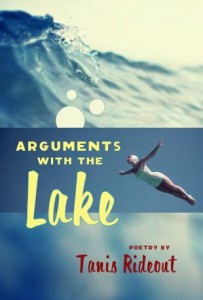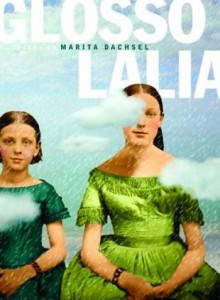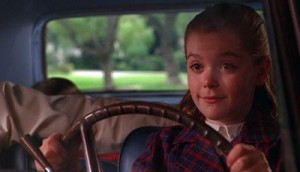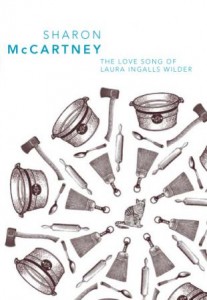May 12, 2013
Arguments with the Lake by Tanis Rideout
 …Let’s step now to these gathering places./Name them–our birthright, strung like beads/ on northern shores. Let’s lay claim to the stories/ on this lake, the aquatic murmur of what’s past/ what’s to come.
…Let’s step now to these gathering places./Name them–our birthright, strung like beads/ on northern shores. Let’s lay claim to the stories/ on this lake, the aquatic murmur of what’s past/ what’s to come.
Oh, it’s become a bit of a pattern, hasn’t it, me falling in love with poetry that give voice to obscure figures from the past. This time it’s Tanis Rideout’s poetry collection Arguments With the Lake, which imagines a friendship/rivalry between Marilyn Bell and Shirley Campbell, two women who as girls were determined to swim across Lake Ontario just two years apart. Bell made it and became a legend, while Campbell disappeared into obscurity after two failures to complete her swim. Rideout imagines the connections which bind these two girls, the force which drew them both to the lake’s edge and made them attempt to be a part of history. As the book’s exquisite cover suggests, there is 1950s’ bathing-beauty glamour going on here with a particular Toronto bent–Sunnyside Beach and the Palais Royale. The poems also examine the darker forces of friendship, of womanhood, of what inevitably follows girldom, stardom. The lake itself is Rideout’s main character though throughout the book, speaking back to each of the girls’ arguments, enduring but ever-changing. From “The Fear of Silence”: “The shoreline changes more than its citizens. The city/ has leeched into the lake. Front Street really was the Front./ Fisherman docked at the market’s doors. It is as though/ we want to live in that water–press into it, fill it up,/ like empty hours filled now with digital detritus”. I loved this book.
April 21, 2013
Cottonopolis by Rachel Lebowitz
 In Cottonopolis, Rachel Lebowitz both imagines and recreates the global trinity that was created by the 19th century cotton industry–in the American South where the cotton was grown by slave labour, in Lancashire England where the cotton was produced in mills with their belching chimneys and inhumane working conditions, and in India whose own textile trade was violently supplanted by the introduction of English imports. Through a series of prose poems and found poems, Lebowitz draws tight the lines between these distant places, their connections to lives lived locally and globally, and the connections between economics, industrialization, and story-telling. She plants seeds of connection between those nineteenth-century factories “[u]ntil the 1980s is a wasteland of old chimneys. Until the clothes are made in China…”. This is not a story as distant in place and time as it might seem.
In Cottonopolis, Rachel Lebowitz both imagines and recreates the global trinity that was created by the 19th century cotton industry–in the American South where the cotton was grown by slave labour, in Lancashire England where the cotton was produced in mills with their belching chimneys and inhumane working conditions, and in India whose own textile trade was violently supplanted by the introduction of English imports. Through a series of prose poems and found poems, Lebowitz draws tight the lines between these distant places, their connections to lives lived locally and globally, and the connections between economics, industrialization, and story-telling. She plants seeds of connection between those nineteenth-century factories “[u]ntil the 1980s is a wasteland of old chimneys. Until the clothes are made in China…”. This is not a story as distant in place and time as it might seem.
Many of the poems in Cottonopolis are classified as “Exhibits”, extrapolations of nursery rhymes, historical record, images, maps and items everyday and otherwise. Some echo the voices of those whose lives were made or broken by the cotton trade. The collection’s notes at the end of the book provide context and further explanation for what the poems themselves represent, and they add fascinating weight to this creative work and its stories.
But most remarkably for this book that uses language to build a museum is that the language itself is easily and unabashedly the work’s most remarkable aspect. I love the stories here, the history, but I can’t help but catch my mind on a line like “The trill of the/ robin, the trickle of the rill.” Or my favourite poem in the collection, “Exhibit 33: Muslin Dress” which turns language inside out in order to sew the whole world up into a tidy purse: “Here are the railway lines and there are the shipping/ lines. Here’s the factory line. The line of children in the/ mines. The chimney lines. There is the line: from the/ cotton gin to the Indian.”
April 10, 2013
Glossolalia by Marita Dachsel
 Marita Dachsel is a friend, and I was already inclined to like her new book Glossolalia because I’ve got a thing for obscure historical figures/stories whose voices are resurrected via poetry. In Glossolalia, the stories belong to the 34 polygamous wives of Joseph Smith, founder of the Mormons, though Dachsel is careful to point out that her book is not meant to be a biography or a historical work. Rather, as Sharon McCartney explained with her Laura Ingalls Wilder poems, “the voices, the characters and the details are vehicles, a way to say what I want to say.”
Marita Dachsel is a friend, and I was already inclined to like her new book Glossolalia because I’ve got a thing for obscure historical figures/stories whose voices are resurrected via poetry. In Glossolalia, the stories belong to the 34 polygamous wives of Joseph Smith, founder of the Mormons, though Dachsel is careful to point out that her book is not meant to be a biography or a historical work. Rather, as Sharon McCartney explained with her Laura Ingalls Wilder poems, “the voices, the characters and the details are vehicles, a way to say what I want to say.”
Glossolalia is a curious, wonderful book, in which a “self-avowed agnostic feminist uses mid-nineteenth century Mormon America as a microcosm for… universal emotions…”. Through Smith’s wives, each one with her own name, point of view and distinct voice, Dachsel explores ideas about love, marriage, pregnancy, motherhood, jealousy, domesticity, sex, trust, and betrayal. While the poems themselves are united by their representation of the voices of Smith’s wives, their styles and approaches are remarkably diverse, some written with formality and great distance, others more ribald and contemporary in tone. Apart from a few (often negative) examples, there is no sense of connection between these women, the poems showing their experiences of the world to be remarkably disparate, complicating tidy ideas of sisterhood. Dachsel’s wives are less a chorus than a cacophony, a crowd of dissonant voices, each shouting to be heard above the others.
But hear them, we do. The wives each emerge as distinct, aware, embodied, and it is the smallness and closeness of poetry (as well as their poet’s talent) that brings them so to life.
April 3, 2013
The Sally Draper Poems
 While I never finished reading The Collected Stories of John Cheever, which has been sitting on the table before me now for more than 2 years, my literary obsession with Mad Men continues, as does my obsession with Mad Men in general. (We have spent the last while rewatching the entire series, and are now partway through Season 4. We will save Season 6 until our baby sleeps for at least an hour at a time. Basically, I do not care to acknowledge that there are any other televisions shows in the world.)
While I never finished reading The Collected Stories of John Cheever, which has been sitting on the table before me now for more than 2 years, my literary obsession with Mad Men continues, as does my obsession with Mad Men in general. (We have spent the last while rewatching the entire series, and are now partway through Season 4. We will save Season 6 until our baby sleeps for at least an hour at a time. Basically, I do not care to acknowledge that there are any other televisions shows in the world.)
So I was overjoyed to read “The Sally Draper Poems”, written by one of my favourite poets Jennica Harper. These poems are so very good, demonstrating Harper’s sharp wit, gift for voice, and her amazing sympathy with a young girl’s perspective. I love the texture that they add to the Mad Men universe.
See also:
- My post, What Sally Draper Must Have Been Reading
- The poem “Don Draper” by Nyla Matuk, who has just been nominated for the Gerald Lampert Memorial Award
April 1, 2013
The Love Song of Laura Ingalls Wilder by Sharon McCartney
 Marita Dachsel recommended The Love Song of Laura Ingalls Wilder by Sharon McCartney right when our family was in the middle of reading On the Banks of Plum Creek, and so it seemed like an irresistible pick. Because we’ve been so fascinated by the gaps and silences in the Little House books, by what goes on between the lines. What is it to be Caroline Ingalls, we’ve been wondering for a while, and are there varying tones to her declarations of, “Oh, Charles.”? What does “Oh, Charles.” really mean?
Marita Dachsel recommended The Love Song of Laura Ingalls Wilder by Sharon McCartney right when our family was in the middle of reading On the Banks of Plum Creek, and so it seemed like an irresistible pick. Because we’ve been so fascinated by the gaps and silences in the Little House books, by what goes on between the lines. What is it to be Caroline Ingalls, we’ve been wondering for a while, and are there varying tones to her declarations of, “Oh, Charles.”? What does “Oh, Charles.” really mean?
In her foreward, Sharon McCartney writes of her poems, “I don’t think of them as being an extension of Wilder’s stories. Rather, the voices, the characters, and the details are vehicles, a way to say what I want to say.” But saying what she wants to say via these characters, voices, details renders these poems familiar territory for me, which is important when poetry itself is decidedly not.
From “Ma”: “This morning I addressed the roof beams, /Charles twitching in sleep beside me: /Today I will do whatever I want.” I was amazed by the perspective of a bull-dog in, “Jack, Swept Away When the River Rises Suddenly Mid-Ford” and of the tattered rag-doll in “Charlotte”. Some poems I suppose I read as voyeuristic glimpses deeper inside the book, such as “Nellie Olesen” which imagines Laura’s nemesis years later, sitting mildly at a temperance meeting. “Pa’s Penis” was not as naughty as we’d imagined.
The Love Song of Laura Ingalls Wilder has much in common with Lorna Crozier’s recent collection The Book of Marvels, itself a catalogue of the hidden lives of ordinary things. As interesting as “Pa’s Penis” and the revelation that the Ingalls family had a son who died at nine months of age is the poem from the perspective of the butter churn, the chinook, a rocking chair, the boughten broom. As interesting as the Little House allusions are the poems themselves, and how they turn familiar territory into a vision that’s altogether new.
April 13, 2010
The Laundromat Essay by Kyle Buckley
 Does poetry have the same male/female divide that fiction may or may not have (and how you feel about this depends how you feel about ghettos)? Can I also confess here that I’ve not approached any male poets to take part in Poetic April because I’m afraid of male poets? In the blogosphere at least, male poets always seem to be having public feuds whose origins I can never decipher, but it’s usually something theoretical. And maybe it’s just the poets I gravitate to who, like most writers I gravitate to, are usually female, but their work is largely accessible in a way that Kyle Buckley’s (or Michael Lista’s too) is not. This is all just a sweeping generalization based upon a tiny sample group, but I will be expanding the sample group over the next few weeks and I’ll see how it goes. (I’m also going to be reading Erín Moure soon, which I expect will change my mind about everything).
Does poetry have the same male/female divide that fiction may or may not have (and how you feel about this depends how you feel about ghettos)? Can I also confess here that I’ve not approached any male poets to take part in Poetic April because I’m afraid of male poets? In the blogosphere at least, male poets always seem to be having public feuds whose origins I can never decipher, but it’s usually something theoretical. And maybe it’s just the poets I gravitate to who, like most writers I gravitate to, are usually female, but their work is largely accessible in a way that Kyle Buckley’s (or Michael Lista’s too) is not. This is all just a sweeping generalization based upon a tiny sample group, but I will be expanding the sample group over the next few weeks and I’ll see how it goes. (I’m also going to be reading Erín Moure soon, which I expect will change my mind about everything).
Anyway, my way of access into Kyle Buckley’s The Laundromat Essay was by having heard him read last year as part of the Pivot series, and his work was so fresh, jarring, funny and absurd that I bought the book. Reading the book, however, did not come with the same ease that listening to it had. The work is still fresh, jarring, funny and absurd, but it’s hard. The key, I think, is to read as you would listen– pay attention to the sounds of the words, let the poems float over you, to let the atoms fall where they may. Like any poet, Buckley paints a picture, but his is abstract, its meaning subject to interpretation, and neither meaning nor interpretation is really quite the point (so perhaps I should stop trying to wrap my head around the idea of a book as “a blindfolded staircase”).
But in a way, wrapping my head aroud that idea is the point, that Buckley uses imagery and language in ways that challenge expectations. That the imagery and language aren’t more than the sum of their parts, or rather than they needn’t be. Here is a surface worth skimming for a long while before contemplating what’s going on underneath it, and in places (I think?) the surface might just be impenetrable. It put me in mind of John Ashbery meets Samuel Beckett.
The work itself is not impenetrable though. Buckley’s book is built around a narrative essay about a young man arguing for after-hours access to the laundromat to fetch his clothes. The laundromat owner is more interested in the whereabouts of his son, who is called Hoopy. Their conversation goes in circles, and the young man is recounting all of this to the person he is waiting for, the person he requires clothes for. His narrative is footnoted by references to poetic fragments that go some way toward illuminating his situation. “By this point, I very nearly love you. Which means that I love you with, I don’t know, all of the intensity of a thousand brilliant suburban porch lights.” And some times the fragmants don’t illuminate much at all, but the recurring words and ideas serve to drive the work forward, and I’m fasinated, however baffled.
And just writing all this here has been somewhat terrifying, because I don’t really understand what Buckley is up to, and I probably don’t understand many of the references that would explain it. It is intimidating to write about something that seems so beyond me, but I’ve written anyway (ever careful to profess no authority) because this is a book worth writing about (as it’s worth reading, and worthy of discussion). Poetry really does need to be brought into the wider world, which is from where (the reading) I found this book in the first place, and now that I’ve read it, I am very glad I did.
March 21, 2010
Poetic April Returns
 I’m getting ready once again for Poetic April, the Pickle Me This celebration of National Poetry Month. During which I plan to read poetry, buy poetry, write here about poetry, post poems and generally enthuse. I come at my enjoyment of poetry from a very pedestrian perspective, so I am pleased to announce that we’ll be having poets guest-posting here throughout the month to educate us all. I do hope, however, that the one advantage of my limited perspective will be that other ordinary readers will also come to see how poetry can speak to us all*.
I’m getting ready once again for Poetic April, the Pickle Me This celebration of National Poetry Month. During which I plan to read poetry, buy poetry, write here about poetry, post poems and generally enthuse. I come at my enjoyment of poetry from a very pedestrian perspective, so I am pleased to announce that we’ll be having poets guest-posting here throughout the month to educate us all. I do hope, however, that the one advantage of my limited perspective will be that other ordinary readers will also come to see how poetry can speak to us all*.
*Am I allowed to say that? Does poetry even want to speak to us all? If I suggest that I love a collection of poetry for its narrative, for instance, is that a back-handed poetic compliment? Which is not to say that language isn’t what I pay attention to, for language is what a poem is made of, but if I don’t have the background to appreciate the language as experts would say I should, am I even entitled to appreciate it at all?
January 11, 2010
A recent bookish intersection
“It is past midnight. One of the joys of marriage, thinks Roger, is this late night dissection of events in the privacy of bed, and the glorious intimacy, when the rest of the world is locked out and only you and she exist.”
–from Penelope Lively’s novel Family Album
**
all day
i wait all day
for these ten minutes
awake in our bed,
your minted breath,
lick of dark
across my eyelids,
and the little clicks
your glasses make
as they’re folded
and set on the nightstand
— from Kerry Ryan’s collection The Sleeping Life
November 3, 2009
On poetry and verse
We’ve been delighting in verse since Harriet was born. We’ve read Old Possum’s Book of Practical Cats, When We Were Very Young, Jelly Belly and Alligator Pie by Dennis Lee, and we’ve just started Till All the Stars Have Fallen: Canadian Poems for Children. Reading the poems aloud has been tremendous fun, and Harriet likes to listen (most of the time), and I’ve enjoyed rediscovering poems I read years ago and reading many others for the first time– I’d never read the Eliot or A.A. Milne before. I do wonder, however, how much the fun we’re having with verse constitutes anything to do with poetry proper. Will the one lead to the other for Harriet, and for ourselves? And what’s the relationship between the two? Is verse the pop music of literature? How does one cultivate an appreciation for poetry in a child? By which I mean, what is the way from Macavity the Mystery Cat to Prufrock?
June 22, 2009
It's hard to be hip over thirty

I’ve been rereading my copy of poetry collection It’s Hard to Be Hip Over Thirty by Judith Viorst (of Alexander’s No Good Very Bad Day). My edition is a gorgeous Persephone Book (endpaper as above) and I’m rereading because I’m turning thirty on Wednesday, and as I certainly found it difficult enough to be hip under thirty, I need all the help I can get. From the title poem:
All around New York
Perfect girls with hairpieces and fishnet jumpsuits
Sit in their art nouveau apartments
Discussing things like King Kong
With people like Rudolph Nureyev.
Meanwhile the rest of us
Serving Crispy Critters to grouchy three-year-olds
And drinking our Metrecal,
Dream of snapping our fingers to the music
If only we knew when to snap.
But it’s hard to be hip over thirty
When everyone else is nineteenm
When the last dance we learned was the Lindy,
And the last we heard, girls who looked like Barbra Streisand
Were trying to do something about it.
We long to be kicky and camp– but
The maid only comes once a week.
And since we have to show up for the car pool,
Orgiastic pot parties with cool Negroes who say ‘funky’ and ‘man’
Seem rather impractical.
The Love Song of J. Aldred Prufrock,
Which we learned line by line long ago,
Doesn’t swing, we are told, on East Tenth Street,
Where all the perfect girls are switched-on or tuned-in or miscegenated,
But never over thirty
Trying hard
To be hip.





